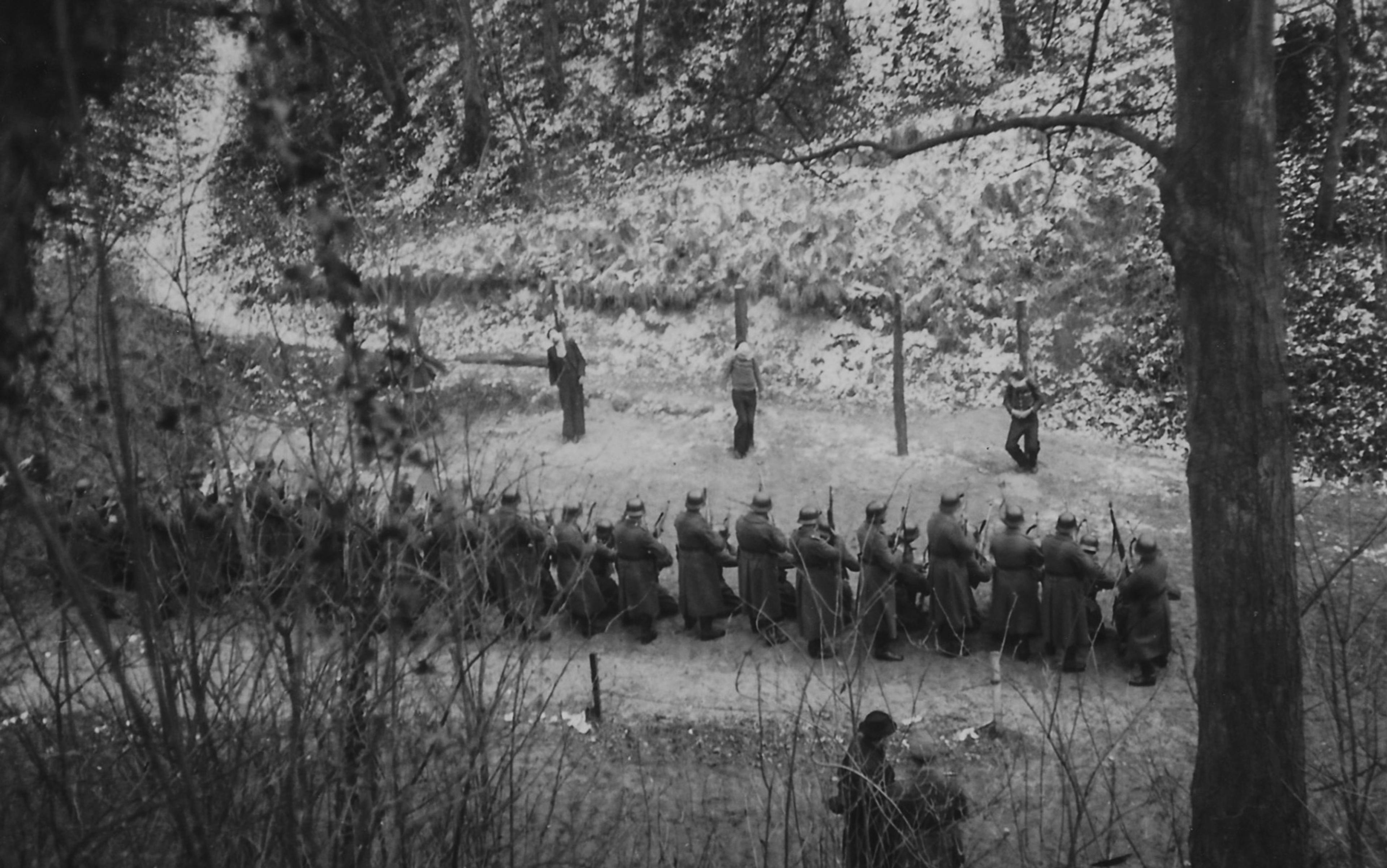In The Republic, Plato tells the story of Er, a soldier slain in battle, found amid the decaying corpses of other soldiers. After being hoisted upon a funeral pyre, Er’s body comes back to life, and he begins to tell a great tale: his soul journeyed to the other world, where he saw two openings in the earth, and judges directing a great confluence of humanity. The just were sent onward to heaven and the unjust to the lower way. The judges tell Er he is to be a messenger, and return to earth to relay all that he heard and saw.
The broad outline of Er’s tale – a soul leaves the body only to return with a message – is a narrative arc that pervades all ages, literatures and cultures. A rational response to the silence of death. Though endless in style and form, it was long unified by one inalterable truth: it can never be verified or thoroughly denounced.
Yet it is curious, at the beginning of the 21st century, to observe how this timeless arc underwent a radical transformation. Since the so-called ‘heaven tourism’ memoir – a sub-genre within Christian publishing – burst into the mainstream, it has dominated the bestseller ‘non-fiction’ lists. Heaven is for Real: A Little Boy’s Astounding Story of His Trip to Heaven and Back (2010) by Todd Burpo sold 10 million copies; 90 minutes in Heaven by Don Piper (2004) and The Boy Who Came Back from Heaven (2010) by Kevin and Alex Malarkey are among a dozen similar titles also in print.
For readers steeped in the dogma of biblical literalism, accepting these memoirs as true wasn’t an irrational leap in logic. If the Bible is the inerrant word of God, why wouldn’t God once again find a modern-day messenger to tell the story of the great beyond?
Secularists and atheists denounced the ‘heaven tourism’ genre as cliché-ridden and vacuous; spiritual kitsch for the superficial seeker. And advances in the neurosciences explain away near-death experiences as electrochemical processes or normal brain function gone awry. But my reading is more sympathetic than skeptical, considering my atypical lens: as a Catholic-raised, born-again backslider turned unrepentant agnostic, I immediately recognised the desperation on each page.
Reading these books catapulted me back into my evangelical past life, reminding me of who I might be still, had I not sought relief from the dissonance of biblical literalism. For me, the genre’s popularity was not a sign of resurgent faith, but symptomatic of faith’s waning – a last gasp at belief, a signal of a coming break.
In 2010 in the town of Imperial in Nebraska, a preacher called Todd Burpo sat down with a ghostwriter to write a fantastical tale. During an emergency appendectomy, the preacher’s nearly four-year-old son Colto journeyed to heaven, while his body still lay on the operating table. After his surgery, the boy captivated his father with talk of his three minutes in heaven: he sat on the lap of Jesus (‘Oh, Dad, his eyes are so pretty!’); watched Jesus ride a rainbow horse; talked with his patriarchal great-grandfather; and saw angels battle Satan. The tale eventually became the aforementioned bestseller Heaven is for Real. Like John the Apostle in the Book of Revelation, little Colton lived to tell the story of Armageddon: ‘[I]t’s going to destroy this world. Jesus and the angels and the good people are going to fight against Satan and the monsters and the bad people.’
It’s an unsettling moment: a child’s embrace of earth’s utter destruction. Adults around him affirming apocalyptic violence with pride. But another scene in the book earns the distinction of being the most disturbing: when little Colton sees a body on display at a funeral, he throws a tantrum, slamming his fists on his thighs, and pointing his finger at the casket: ‘Did that man have Jesus?’ he cries, the dead man’s family looking on. ‘He had to! He had to! He can’t get into heaven if he didn’t have Jesus in his heart!’
The doomed boy walked off, stage left, to his eternal fate; the saved boy ascended to heaven, stage right
I remember being 14, sitting among my church youth group for a Sunday evening service. We watched a one-scene sketch with a tragic plot: a fatal car accident involving two young men. They appeared from the car on a raised platform, eyeing one another, tentatively, as if outside their bodies. They began to piece together where they were. Time has stranded them, like Er, at the two great openings in the earth. One saved boy faced his unsaved friend, a friend he had been too scared to ‘witness’ by telling him the salvation story of Jesus.
‘Why didn’t you tell me?’ the unsaved friend cried in torment.
‘I was afraid to tell you,’ the saved young man answered. ‘I didn’t want to offend you.’
The doomed boy walked off, stage left, to his eternal fate; the saved boy ascended to heaven, stage right.
Soon enough, the altar was full. I was no exception; crying with abandon, awash in the melodrama of damnation. Only with the distance of two decades, do I recognise the moment for what it was: the beginning of my own spiritual break. Our spiritual elders told us to be messengers, sending us out into the malls and school hallways of our sheltered suburban existences to evangelise. In doing so, they placed upon us that greatest of spiritual burdens: the eternal fate of other souls.
‘Each generation meets God in its own manner,’ wrote the Stanford anthropologist T M Luhrmann in her book When God Talks Back: Understanding the American Evangelical Relationship with God (2012). Luhrmann spent two years immersed in a Vineyard Church in Chicago. She was driven by a simple question: why has the God of the late 20th and early 21st century been imagined as magically real?
Luhrmann doesn’t wrestle directly with the rise of the heaven tourism memoir, but her broader conclusions about this social and cultural milieu help explain the genre’s popularity. Evangelical Christians school their minds and senses to experience the supernatural, she writes. But there is a contradiction at the centre of the evangelical Christian experience:
This God is so real, so accessible, and so present, and so seamlessly blends the supernatural with the everyday, that the paradox places the need for the suspension of disbelief at the centre of the Christian experience. The supernatural is presented as the natural, and yet the believer knows that it is not.
It’s an insight that contradicts the going stereotype of the evangelical right as a roving mob of fervent believers, immutable in faith, and immune from doubt. That’s not what’s going on at all, Luhrmann argues. By imagining God as ‘hyperreal’, He is imagined as realer than real, ‘so real that it is impossible not to understand that you may be fooling yourself, so real that you are left suspended between what is real and what is your imagination’.
The scientific literature suggests that little Colton experienced a hallucination, fuelled perhaps by his almost round-the-clock immersion in religious instruction since birth. He’d lost what psychologists refer to as the ability to conduct ‘reality monitoring’, in-the-moment decision-making about whether something is happening within the mind or in the real world.
Over the past year or so, the genre has been discredited, and with it, the profit spigot to Christian publishing has been turned off. In a much-publicised recant, Alex Malarkey denounced his role in co-writing, when he was only six, The Boy Who Came Back From Heaven. (Like Colton, Alex’s co-author is his fundamentalist father.) ‘I did not die. I did not go to Heaven,’ Alex, now a teenager, wrote on his blog. ‘I said I went to heaven because I thought it would get me attention.’ He called the book, which details his near-death experience following a crippling car accident, one of the most deceptive ever written.
Alex’s recant unleashed a backlash, even from inside evangelical circles. In 2014, the evangelical preacher John MacArthur called the genre ‘a twisted, unbiblical picture of heaven’. He argued that such books regale readers with a ‘subjective, superstitious, shallow brand of spirituality’. Studying mystical accounts of supposed journeys into the afterlife ‘yields nothing but confusion, contradiction, false hope, bad doctrine, and a host of similar evils’.
If not born into biblical literalism in Nebraska, he might have become a great novelist
MacArthur isn’t the only Christian to unleash a blistering, yet contradictory, critique. LifeWay Christian stores, which operate in 186 locations across the US, announced in March that it would no longer sell the books. In June 2014, the Southern Baptist Convention issued a resolution, On the Sufficiency of Scripture Regarding the Afterlife, which criticised the genre’s ‘subjective and experiential’ nature. The devout have allowed these books to ‘become their source and basis for an understanding of the afterlife rather than scriptural truth’, according to the resolution, which also dismisses the books as personal testimony that cannot be corroborated. It’s a rather ironic quibble, considering how well such a description applies to the actual Bible.
Unlike Alex Malarkey, Colton Burpo, now a teenager, remains faithful to his story. In a television interview in 2011, flanked by his parents, he is asked if his memories of heaven have grown fuzzy. ‘No, I think those memories are implanted,’ he replies. At four, Colton’s world was the Church. If not born into his milieu of biblical literalism in Imperial, Nebraska, he might have become a great novelist. It is not imagination he lacks, after all – only the space, permission and freedom to wrestle openly with any doubts he would undoubtedly have.
After all, the dead speak, and loose souls wander the underworld in our greatest works of literature. In 14th-century Italy, Dante Alighieri wrote his epic poem The Divine Comedy, in which the author descends to hell, and is guided by Virgil. In the works of Shakespeare, written in 16th-century England, the dead – Julius Caesar, King Hamlet, Lord Banquo in Macbeth – appear as ghosts that speak to the living.
‘I don’t believe in God, but I miss Him,’ laments the English author Julian Barnes in the opening to his collection of essays on looming death, Nothing to Be Frightened Of (2008). I’m not sure I miss God, but I do miss how the story of God – and the silence of death – was once imagined. Instead of Dante and Shakespeare, we have the thwarted and failed fictions of Burpo and Malarkey.
With the purge of these books at Christian bookstores, what’s left is an imaginative void, one filled only with the pabulum on offer from the US author Mitch Albom. His wildly popular books, including The First Phone Call from Heaven (2013), Tuesdays with Morrie (1997), and The Five People You Meet in Heaven (2003), offer readers a fictional world in which ‘heaven exists to help you understand your life on earth’, as Gary Scott Smith, a historian at Grove City College in Pennsylvania, puts it in his book Heaven in the American Imagination (2011).
There are other secular purveyors of the afterlife. The US futurist Ray Kurzweil predicts the viability of whole-brain uploads by the 2030s. The English cosmologist Stephen Hawking said in 2013 that it is theoretically possible to copy a brain onto a computer. Heaven tourism memoirs reflect the need for books that wrestle with the silence of death. But something would be lost if this narrative form, with us since Plato, at least, were left only to the fabulists – or to the science‑fiction writers. We need the realists, too. And now more than ever.
I don’t believe in God, and take glad comfort knowing that one day I will be but a ton of worms in an acre, to borrow a gleeful line from a Samuel Beckett poem. But I do believe if we ever stop wrestling with the meaning of death’s silence, we might really lose our souls.






